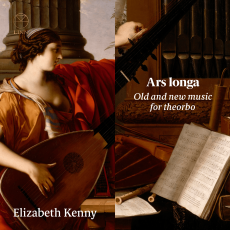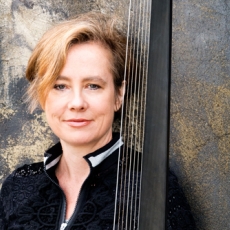Elizabeth Kenny - Ars longa - Andrew Benson-Wilson Blog
This recording from Elizabeth Kenny focuses on the early development of the chitarrone/theorbo towards the end of the 16th century, its 18th-century peak of sophistication, and its reinvention for modern composers in the 21st-century. The music contrasts the early pioneers of Piccinini and Kapsberger, the later stylistic development of Robert de Visée 21st-century pieces by Sir James MacMillan, Benjamin Oliver and Nico Muhly. The programme note includes one of the best descriptions of the chitarrone/theorbo that I have read.
The early pieces reveal the improvisatory nature of the early theorbo repertoire with pieces from Piccinini’s 1623 Intavolatura di liuto et di chitarrone. Midway through that sequence, a theorbo twang introduces the Motet theorbo solo which opens Sir James MacMillan’s 2011 Since It Was the Day of Preparation. This work tells the story of the Crucifixion and the Resurrection with five singers and five instruments, the latter each having expressive soliloquies which can be played as free-standing meditations. In the Motet, the theorbo represents human fragility and sadness. A minimal gap between tracks leads us back to Piccinini with his dance-like Corrente and a Romanesca.
Kapsberger moves us on a few years in the development of theorbo technique with his Canario, the extended and virtuoso Toccata prima and a Passacaglia. The Baroque ground bass tradition of the Passacaglia is also used in Benjamin Oliver’s 2014 Extending from the inside, written for Elizabeth Kenny. Influenced by Arvo Pärt’s Tabula rasa, the six sections are built on a simple additive structure using repetition and elaboration of three principal musical materials.
After the Parisian sophistication of Robert de Visée, the CD ends with another piece commissioned piece – Nico Muhly’s 2018 Berceuse with seven variations. Based on a series of 24 chords that span the compass of the theorbo, the variations contrast the cradle-song notion of a Berceuse with a central baby-waking moment of drama at the climax of the arch-form structure.
Usually just heard adding a bit of a twang to a Baroque orchestra, it is good to hear the theorbo in a solo role. Elizabeth Kenny plays with a refined sense of musical structure and sensitivity.

